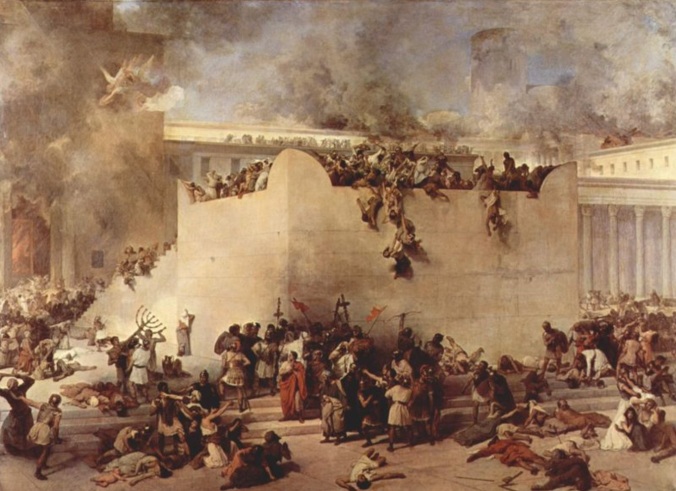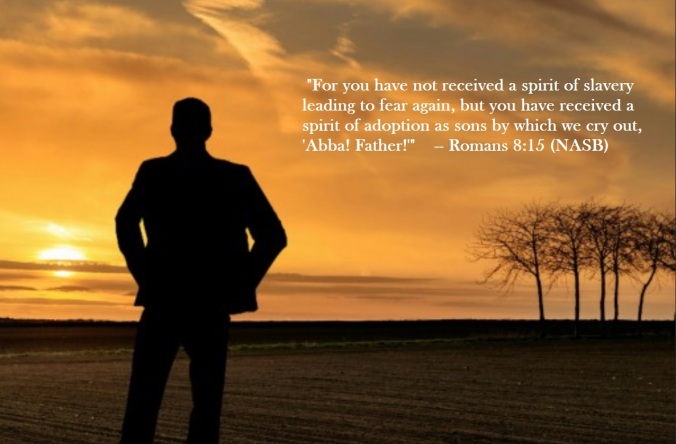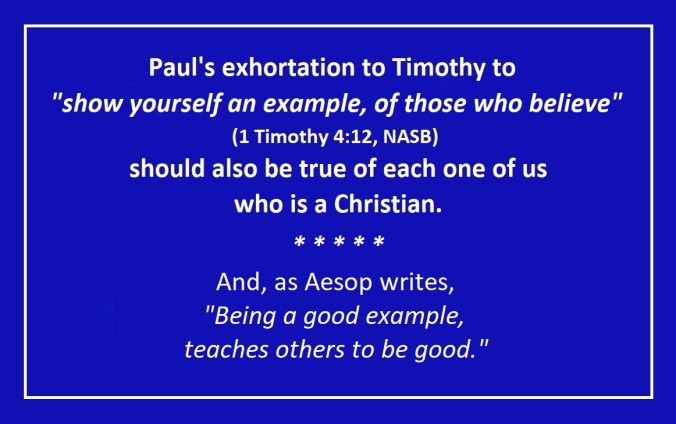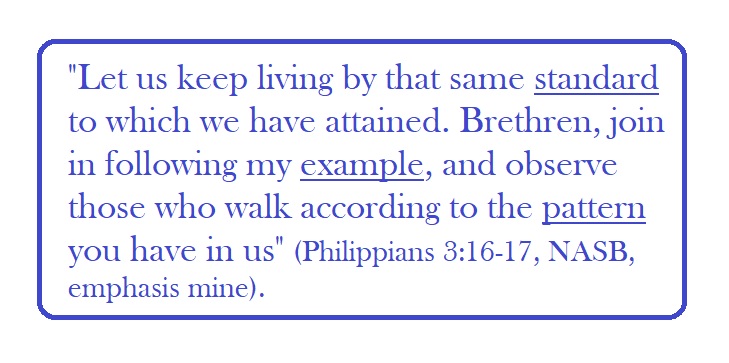“Go therefore and make disciples of all the nations…teaching them to observe all that I commanded you; and lo, I am with you always, even to the end of the age” (Matthew 28:19-20, NASB).
——————–
Contents:
1) “Forgiving One Another” (R.J. Evans)
2) Translating the Bible into Life (Dennis Abernathy)
3) A Faith That Works (David Maxson)
4) Acts 1:1-3 (NASB)
——————–

-1-
“Forgiving One Another”
R.J. Evans
Forgiveness of sins is a central theme that runs throughout the entire Bible. In fact, this is why Jesus came to earth and shed His blood for the whole world (1 Jn. 2:2). This is why we read of all the bloody animal sacrifices in the Old Testament—”for without shedding of blood there is no remission” (Heb. 9:22). But it was “not possible that the blood of bulls and goats could take away sins” (Heb. 10:4). Thus, Jesus, the Son of God, the perfect sacrifice, offered His body on the cross “once for all” (Heb. 10:10). His ultimate sacrifice provided forgiveness for all those who lived faithfully before His death, and also for all of us who now live after the cross, who have obeyed His gospel for the forgiveness of our sins (Heb. 9:14-18). No one can ignore or neglect gospel obedience, because “all have sinned and fall short of the glory of God” (Rom. 3:23). Even after we have been baptized “for the remission of sins” (Acts 2:38), we still sin and need forgiveness (1 Jn. 1:8-10). Therefore, if we continue to “walk in the light as He is in the light, we have fellowship with one another and the blood of Jesus Christ His Son cleanses us from all sin” (1 Jn. 1:7). And when He forgives us of our sins and lawless deeds, He assures us they are forgiven and forgotten forever—”I will remember their sins no more” (Heb. 8:12).
Just as God, through His Son, has forgiven us, we must be willing to forgive those who sin against us. Jesus taught that if we fail to forgive others, “neither will your Father forgive your trespasses” (Matt. 6:14-15). Jesus went so far as to teach us that if someone sins against us “seven times in a day, and seven times in a day returns to you, saying, ‘I repent,’ you shall forgive him” (Lk. 17:4).
Indeed, forgiving others is often difficult. How do we handle forgiving those who come to us in repentance? Unfortunately, some Christians, unlike God, never forget. They will continually dwell on it and make reference to what happened by making disparaging remarks about the offender. Much like the old illustration: “They bury the hatchet, but leave the handle sticking out of the ground so they can go get it at any time and beat us over the head with it.” Let us observe some practical suggestions that will help us after we have forgiven someone.
1. Pray for them (Matt. 5:44). Ask God to help you love and pray for the offender.
2. Love and do good to the offender (Rom. 12:9). Express love sincerely and genuinely, always seeking their welfare.
3. Don’t speak poorly of the offender (Rom. 12:14). As the old adage goes, if you don’t have anything good to say, don’t say anything at all.
4. Release them from your punishment (Rom. 12:17-19). Stop giving them the silent treatment and keeping them at arm’s length.
5. Don’t celebrate their failures (Prov. 24:17). Refrain from gloating, saying “I told you so” or having a mindset of “That’s what you get.”
6. Treat them the way you want to be treated (Matt. 7:12). When you do wrong and repent, you want grace and another chance. Be willing to offer it to others when you get hurt.
7. Stop dwelling on the past (Isa. 43:18). Hit the “delete” button of your heart—stop dwelling on old hurts. Choose to replace them with focusing on good thoughts (Phil. 4:8, 13-14).
Yes, we are to forgive because God has forgiven us. We close with this important and clear command: “And be kind to one another, tenderhearted, forgiving one another, just as God in Christ also forgave you” (Eph. 4:32).
— via the Bulletin of the Southside church of Christ (Gonzales, Louisiana), January 19, 2020
——————–

-2-
Translating the Bible into Life
Dennis Abernathy
I read a story about four preachers who were discussing their favorite translations of the Bible. One preacher preferred the King James Version because of its beautiful language. The second preacher liked the American Standard Version best because it translates more literally the original Hebrew and Greek. The third preacher said that he preferred the New King James Version because of its up-to-date vocabulary. Finally, they asked the fourth preacher which translation of the Bible he liked best. He said, “I like my mother’s translation best.”
This surprised his fellow preachers, who asked if he was saying his mother translated the Bible into English. “No,” he said, “but she translated the Bible into life, and it was the most convincing translation I ever saw.”
This little story reminds me of something else I read: “We are the only Bible the careless world will read. We are the sinner’s gospel, we are the scoffer’s creed. We are the Lord’s last message given in deed and word, what if the type is crooked? What if the print is blurred?”
People who claim to be Christians may be the only translation of the Bible some people ever see. Unfortunately, too many who claim to be Christians have very poorly translated the Bible into life. My friend, what kind of translation of the Bible are those around you seeing? Think on these things.
— Via The Elon Challenger, Volume 17, Number 3, November 2019
——————–

-3-
A Faith That Works
David Maxson
“Then they shall take some of the blood and put it on the two doorposts and the lintel of the houses in which they eat it… And when I see the blood, I will pass over you, and no plague will befall you to destroy you, when I strike the land of Egypt” (Exodus 12:7, 13).
The argument is made that baptism is not necessary for salvation because it is a work, and we’re not saved by works. The scriptures clearly say we are saved by faith and not by works (Eph 2:8-10; Gal 2:16; Rom 4:4-5).
So, if this is true, what are we to do with passages which say that baptism saves us (1 Pet 3:20-21; Mark 16: 16; Acts 2:38; 22:16)? Can we not take these passages at face value? Are we missing something? Is the Bible contradicting itself?
I believe the answer is simple. Baptism is not the kind of work under consideration in the passages that contrast faith and works. On the contrary, baptism is considered in scripture to be an act of faith (Gal 3:26-27; Col 2:12; Mk 16:16; Rom 1:5). So, there is no contradiction at all between scriptures that say we are saved by faith, and scriptures that say we are saved through baptism. The inspired writers did not see faith and baptism as mutually exclusive. Baptism is an expression of our faith.
Just like the children of Israel sprinkled the blood of the lamb on their doorposts by faith (Heb 11:28), so we are “buried with him in baptism, in which you were also raised with him THROUGH FAITH IN THE POWERFUL WORKING OF GOD, who raised him from the dead” (Col 2:12).
Father God, help us to trust in you enough that we obey all of your commandments.
— via Daily Devotions, January 19, 2020
——————–
-4-
Acts 1:1-3
“The former account I made, O Theophilus, of all that Jesus began both to do and teach, until the day in which He was taken up, after He through the Holy Spirit had given commandments to the apostles whom He had chosen, to whom He also presented Himself alive after His suffering by many infallible proofs, being seen by them during forty days and speaking of the things pertaining to the kingdom of God” (NASB).
——————–
The Steps That Lead to Eternal Salvation
1) Hear the gospel, for that is how faith comes (Rom. 10:17; John 20:30-31).
2) Believe in the deity of Christ (John 8:24; John 3:18).
3) Repent of sins (Luke 13:5; Acts 17:30).
4) Confess faith in Christ (Rom. 10:9-10; Acts 8:36-38).
5) Be baptized in water for the remission of sins (Mark 16:16; Acts 2:38; 22:16; Rom. 6:3-4; Gal. 3:26-27; 1 Pet. 3:21).
6) Continue in the faith, living for the Lord; for, if not, salvation can be lost (Heb. 10:36-39; Rev. 2:10; 2 Pet. 2:20-22).
——————–
Tebeau Street
CHURCH OF CHRIST
1402 Tebeau Street, Waycross, GA 31501
Sunday services:9:00 a.m. (Bible class); 10 a.m. & 5 p.m. (worship)
Wednesday: 7 p.m. (Bible class)
evangelist/editor: Tom Edwards (912) 281-9917
Tom@ThomasTEdwards.com
http://thomastedwards.com/go (Older version of Gospel Observer website without pictures, but back to March 1990)
http://tebeaustreetchurchofchrist.org/
http://ThomasTEdwards.com/audioser.html (audio sermons)













